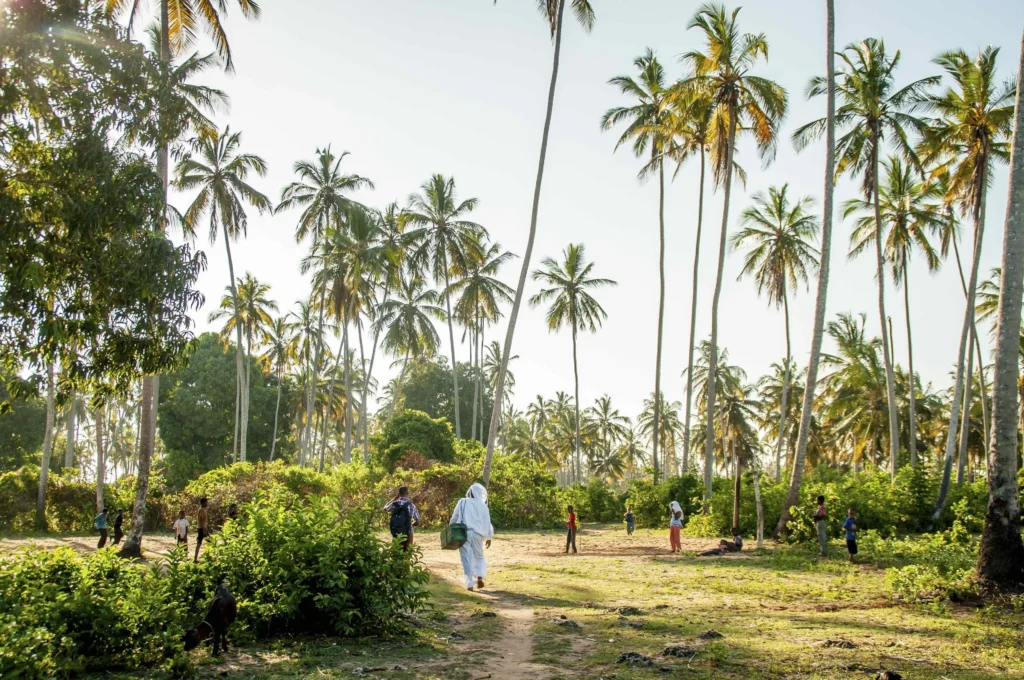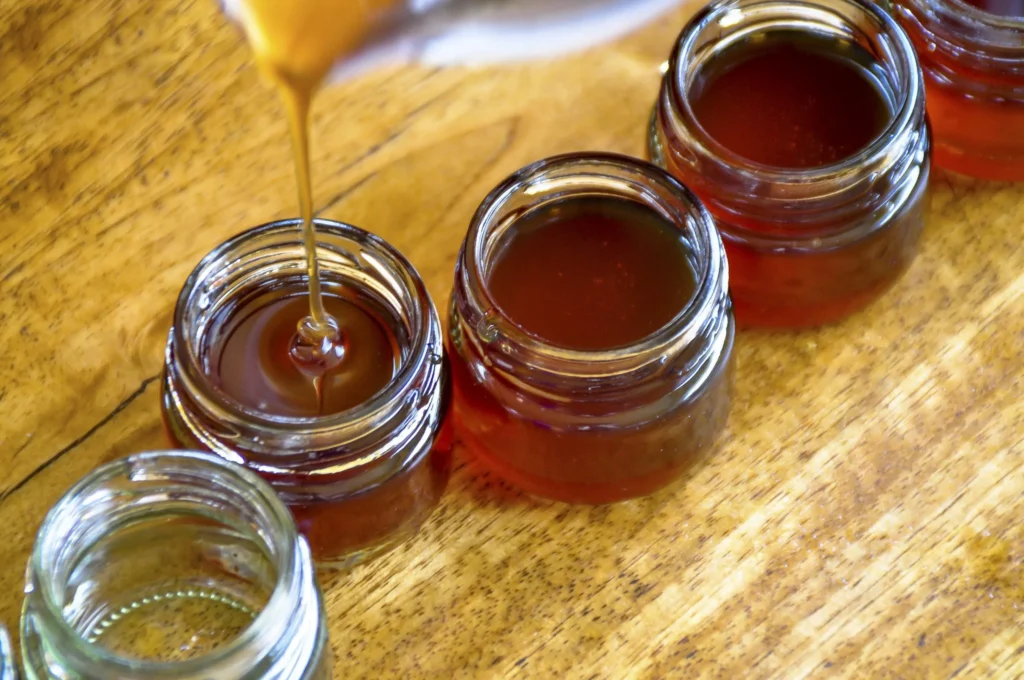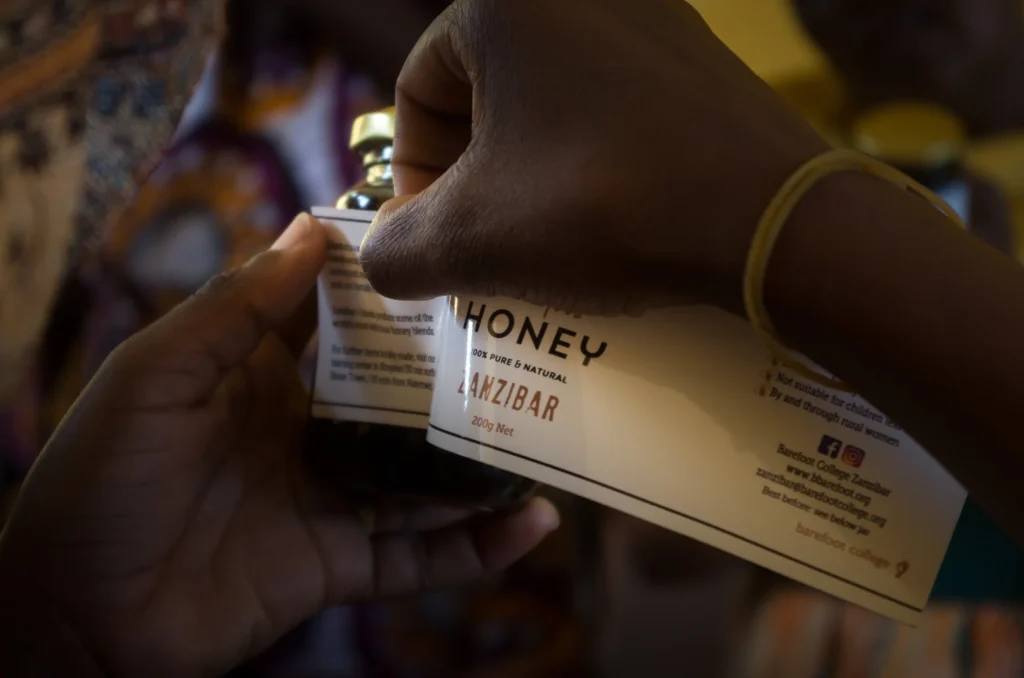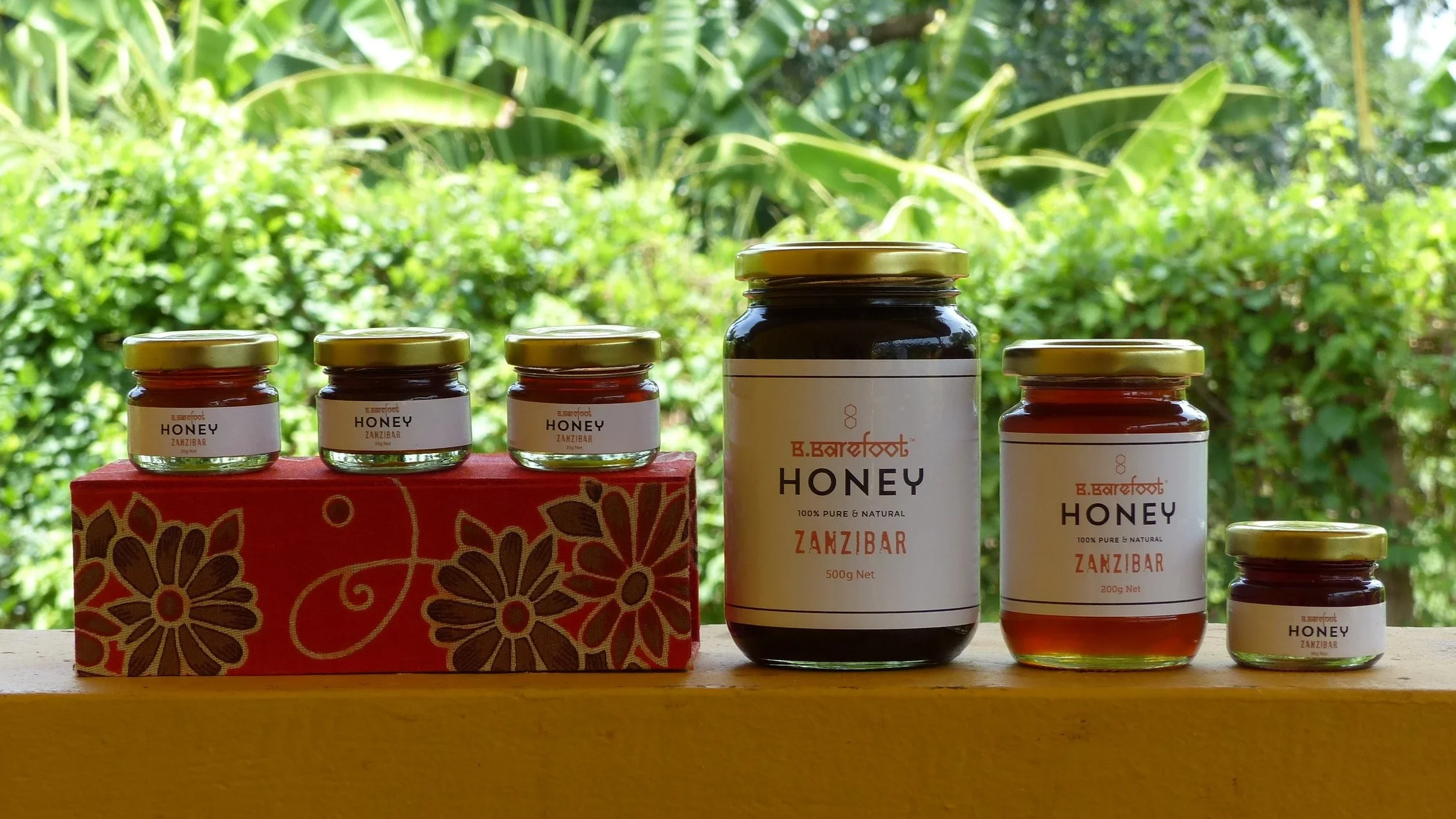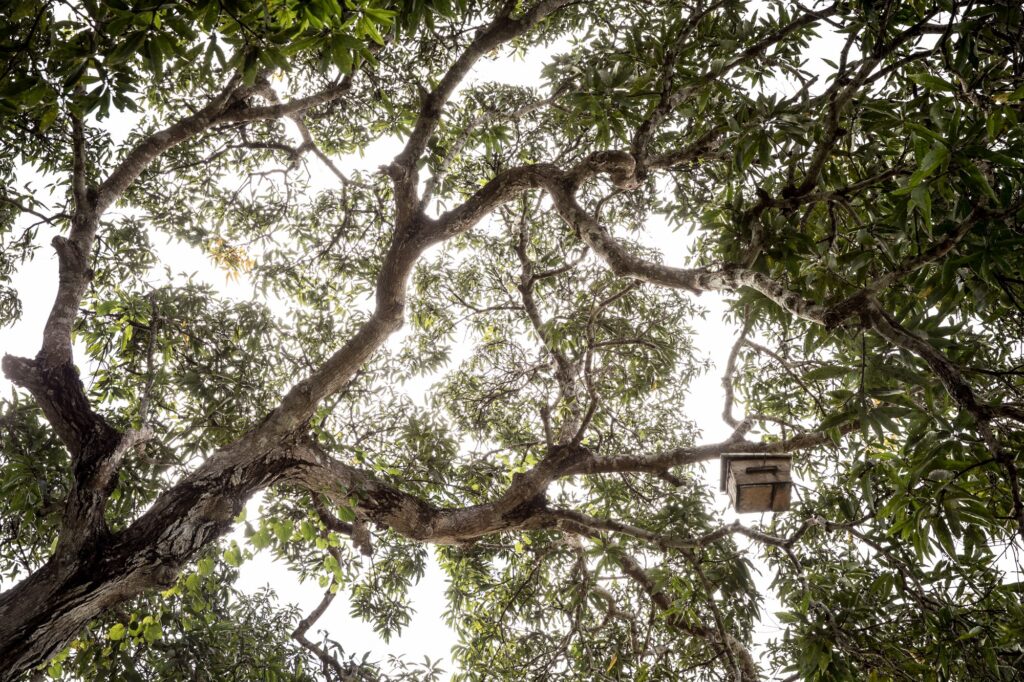
BEEKEEPING PROGRAMME
NATURAL, LOCAL HONEY
WHY BEEKEEPING?
Bees, and beekeeping, are closely related to the floral environment, the health of surrounding biodiversity and have an important impact on crops and flower pollination, both wild and domesticated. These aspects have been understood for large-scale farming (coffee, cacao, colza, almonds…) for several decades. They have been used to improve pollination and therefore the production of fruits and crops. Unfortunately, it is often ignored in small-scale farming in villages, where interaction with bees is limited to very grassroots beekeeping practices or wild honey gathering. Beekeeping practices haven’t spread in rural communities as much as they potentially could, considering it can be done with low initial investments. East Africa has a wealth of bees and is free from most diseases and issues met by beekeepers in Europe and America. Bees products are very valuable and diversified; there is a plethora of beneficial nutritional and medicinal properties in honey, and we are still discovering further applications for propolis, pollen and bee venom.
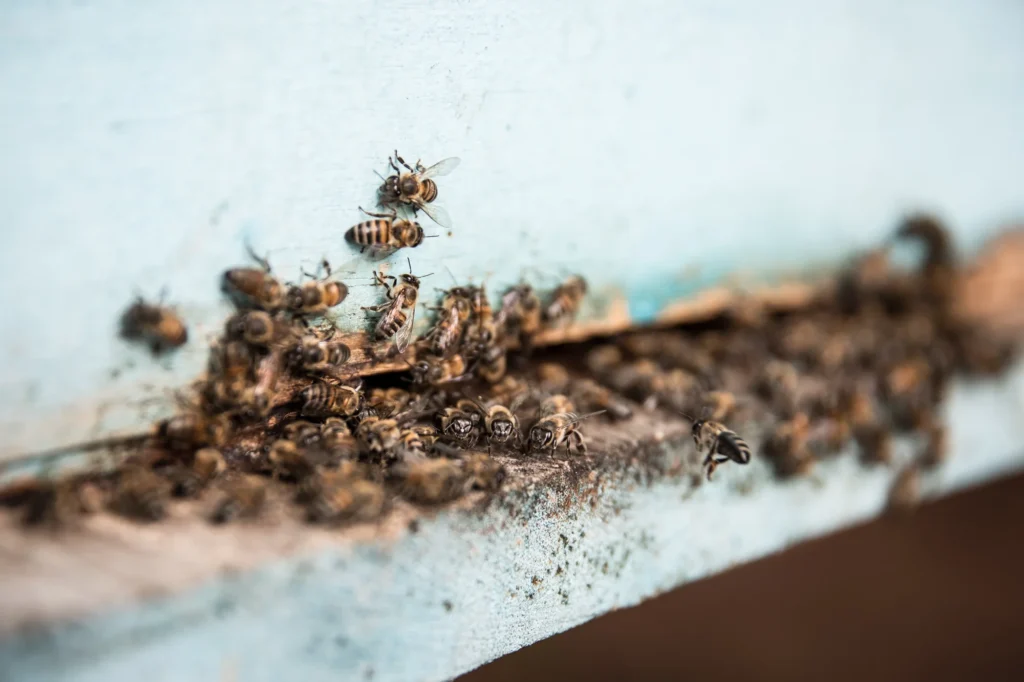
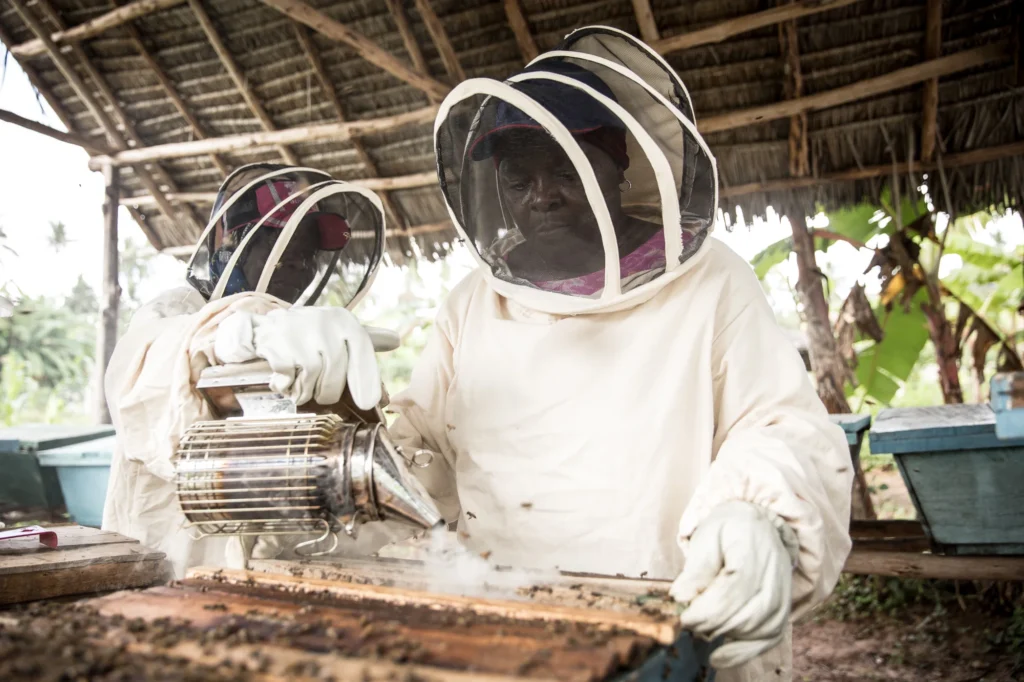
Beekeeping is a real school of curiosity. It is amazing to notice that providing teaching on the life of bees, their impact and their activities, brings about many questions and research from the apprentices. From rudimentary knowledge, beekeepers enrich continually and acquire an understanding of the principles related to the biology, genetics and agronomy involved in beekeeping. There is a need to provide proper training to ensure capacity building and reach a certain level to enable a transfer of knowledge.
Beekeeping benefits both humans and nature. It deserves dedicated time, expert training and financial investment in related programmes and enterprises.
BEEKEEPING AS A SUSTAINABLE LIVELIHOOD ACTIVITY
As part of the Enriche Beekeeping Programme, we select, train, equip and follow up with women from rural communities of Zanzibar and Tanzania, that will benefit the most from such kind of additional livelihood. The 10 days training is provided in Swahili, following a curriculum we developed in partnership with Bees for Development NGO, focusing on the Top-Bar Beekeeping method. This type of beekeeping is particularly adapted to the local context as it requires low initial investment and simple, locally-made equipment, doesn’t involve carrying heavy boxes and is easily spreadable within local communities. Training also includes workshops on Environmental Awareness, Permaculture principles and Financial Inclusion to help apprehend future incomes and expenses linked to their activity.
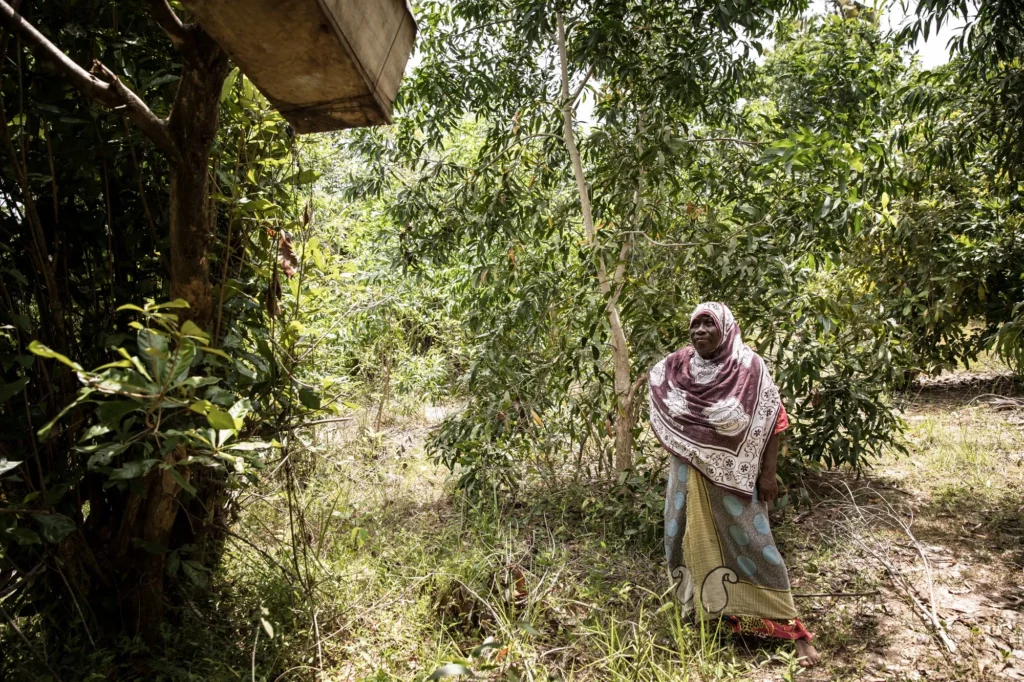
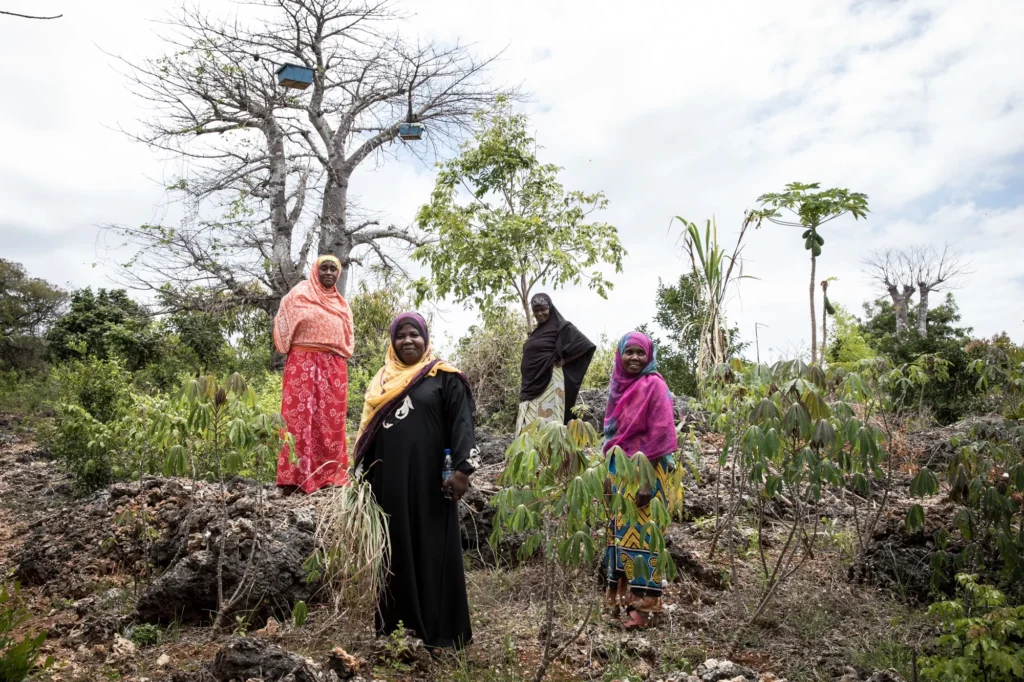
Once the training is completed, women beekeepers receive the equipment needed to start their activity (beehives, protective clothing, smokers, tools and starting kit) that they will slowly pay back when selling honey at a fair price to the B.Barefoot Honey brand, created as a social enterprise to self-sustain our activity.
Our Beekeeping Team and Local Partners provide regular support visits to every trained beekeeper in their village, at relevant periods, over two years to ensure a proper start of their activity. In addition, Barefoot Beekeepers stay closely bound to the local training center, which acts as a “Hub” for continued learning and development.
B.BAREFOOT HONEY
Zanzibar has a high demand and good value for local honey. One beehive can produce around 10 KG per year. The islands of Zanzibar have a unique environment and various vegetation among which 20 000 Ha are mangrove forests. It is one of the most important sources of nectar and vegetation, but it is threatened by legal and illegal harvesting of charcoal, firewood and timber. Establishing bee colonies near the mangrove forests helps to preserve these areas.Wild honey gathering, which involves taking honey from wild colonies, in turn often killing them, is sometimes the only local practice of getting honey. Introducing sustainable beekeeping knowledge in these villages helps to release pressure on the wild bee population.
We focus on providing quality processing, packaging and marketing of our products, to make sure both women and B.Barefoot Honey receive a fair value for their work. The different locations of apiaries offer a great range of honey varieties: mango, mangrove, clove, coral or fruit flower blends honey.
